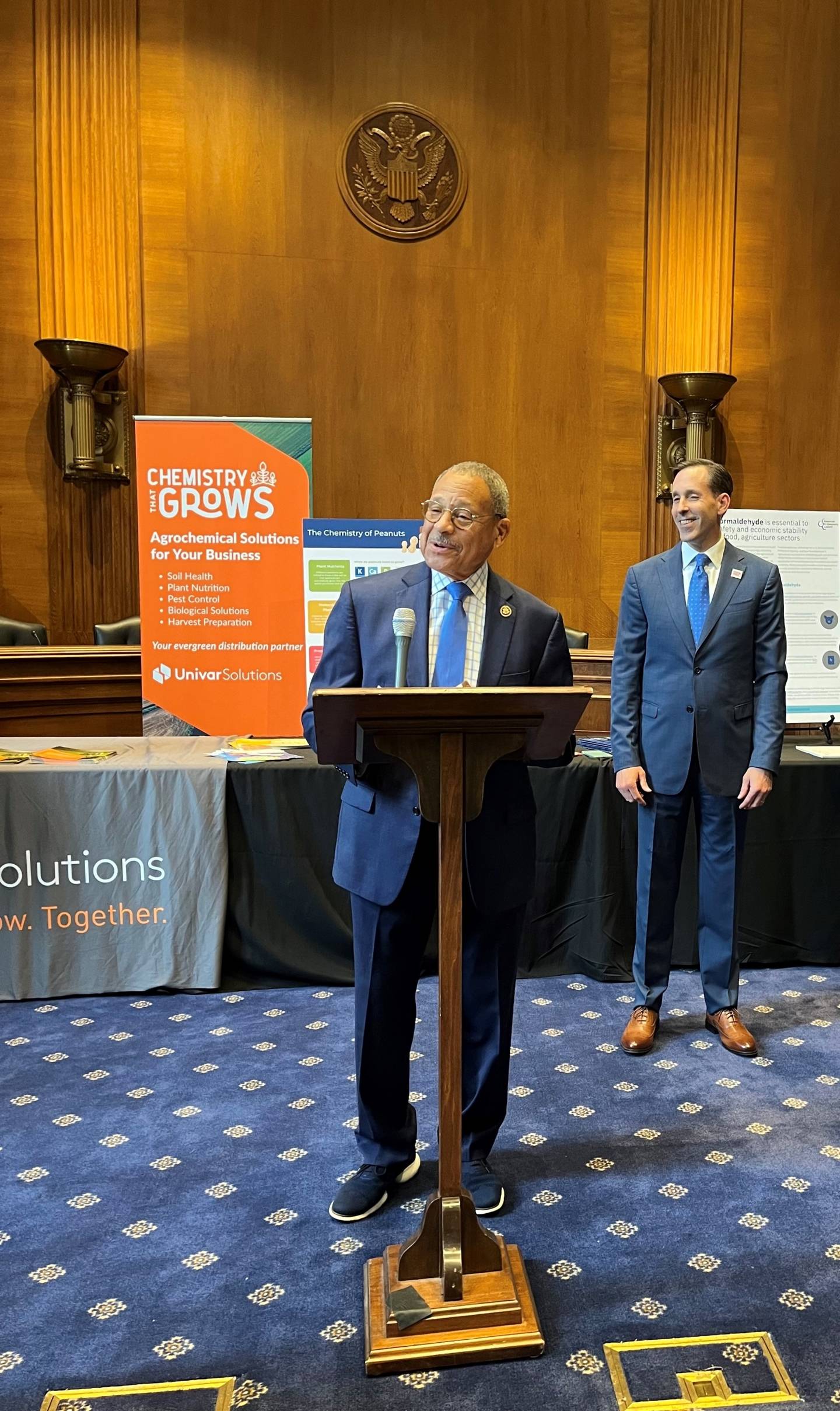Chemistry is needed by everyone and contributes to just about everything we rely on. To help drive this point home, the American Chemistry Council (ACC) co-hosted a reception with the Congressional Chemistry Caucus highlighting the strong bond between chemistry and agriculture. The reception was held in the Senate Environment and Public Works committee room to showcase how chemistry feeds and nourishes America underpins.

Congressman Sanford Bishop (GA-2), affectionately known as "the peanut congressman,” delivered welcoming remarks and explained how chemistry helps his district feed America and how chemistry serves as a steppingstone to help make life better.
Representatives from Univar, CropLife, BASF, Nouryon, and The Peanut Institute were also on hand with displays to showcase the many ways chemistry contributes to a bountiful food supply.
Nouryon explained how innovative chemistries are used to protect and grow plants. Through a special chemical technology called adjuvants, Nouryon demonstrated how chemistry enhances the efficacy of agricultural chemicals, ensuring targeted application while mitigating environmental impact—a testament to chemistry's power to foster sustainable farming practices. Adjuvants are precision-engineered blend of chemicals that improve how different agricultural products mix in a farmer’s spray tanks are added to pesticide sprays to improve their effectiveness or application.
The Peanut Institute detailed not only how chemistry helps in the farming and prep process but also how the chemistry found in peanuts contributes to numerous health benefits. With an emphasis on heart health and overall well-being, The Peanut Institute showcased how chemistry fortifies the nutritional profile of peanuts, positioning them as a cornerstone of a healthy diet.
ACC provided a case study of how U.S. chemical manufacturers produce materials used in fertilizers, insecticides, pesticides, herbicides that help boost crop production, irrigation tubing and greenhouse panels and walls. When it comes to protecting livestock against disease, one chemistry stands out as being particularly useful. Formaldehyde helps pork and poultry producers protect against outbreaks of Salmonella and E-coli.
Through events like these, the Chemistry Caucus provides opportunities for policymakers and industry leaders to convene, foster dialogue, and collaborate on pressing issues at the intersection of chemistry and society. The Caucus is co-chaired by Sen. Capito (R-WV); Sen. Coons (D-DE); Sen. Daines (R-MT); Sen. Peters (D-MI); Rep. Bishop (D-GA); Rep. Moolenaar (R-MI).
Stay tuned for more events to come this year!




